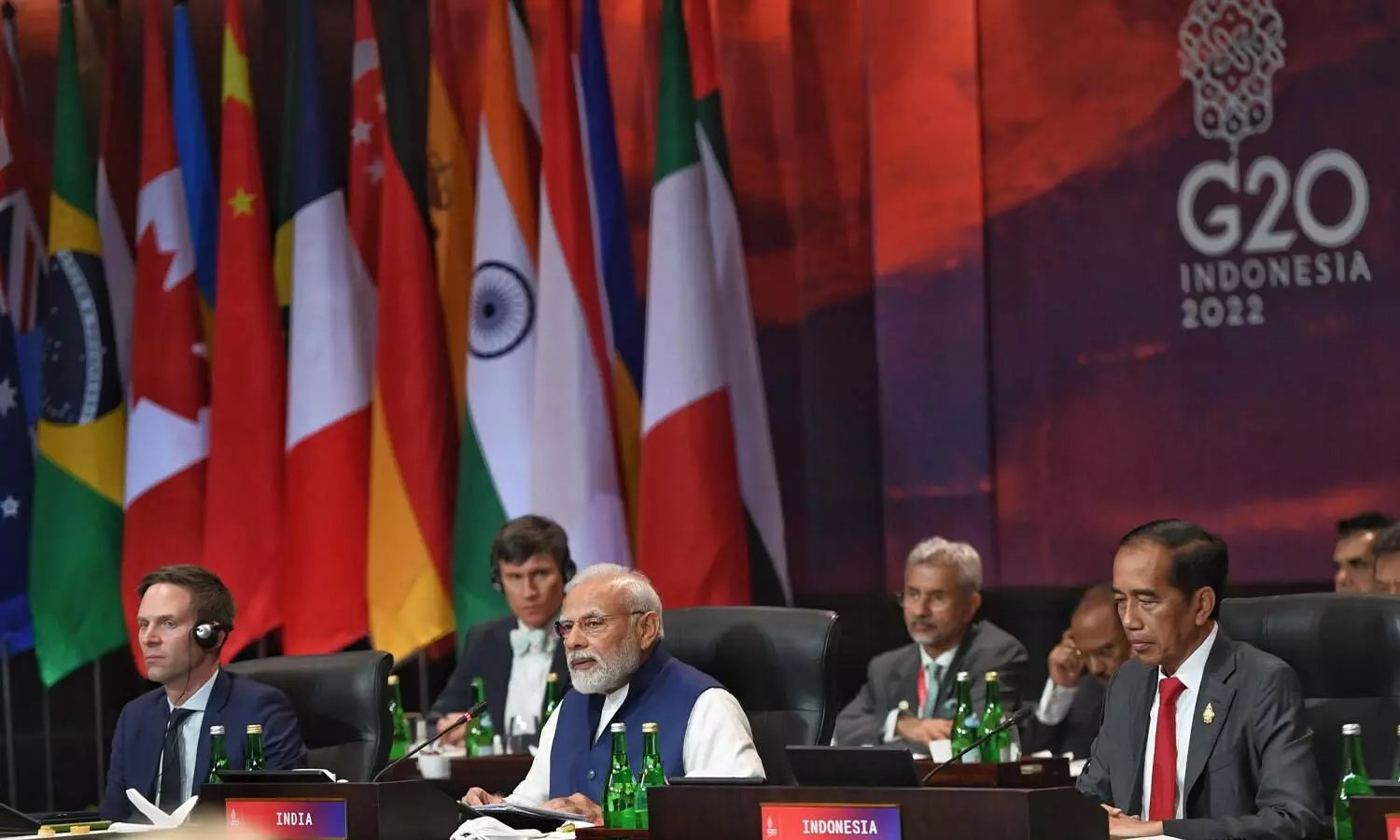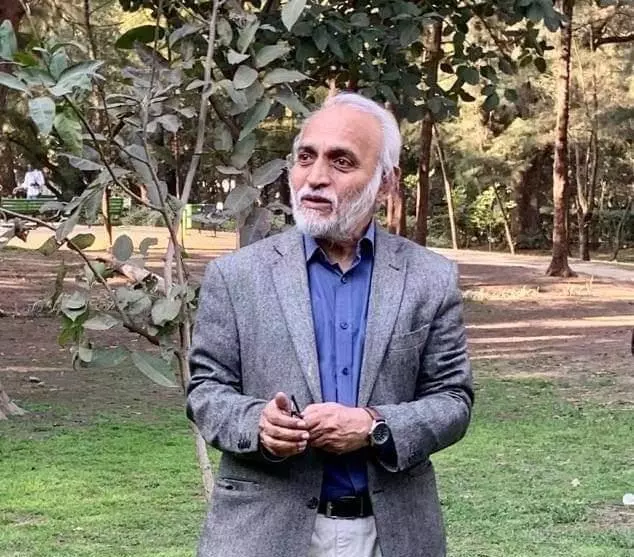Marketing G20 summit: PM Modi's agenda
Narendra Modi, we have now observed in the last eight years, exudes inexhaustible enthusiasm for all things political

Prime Minister Narendra Modi, we have now observed in the last eight years, exudes inexhaustible enthusiasm for all things political. And that is indeed the true calling of a politician. But mere enthusiasm betrays a sense of frivolity when taken to the extremes. And the prime minister indeed takes it to the extremes, and the sense of seriousness which would one assume about matters political serious simply vanishes.It becomes trivialised.
He has shown several examples of this in these eight years. Whether hosting Chinese President Xi Jingping in Ahmedabad or in Mammallapuram, or then Japanese Prime Minister Shinzo Abe in Varanasi, Mr Modi has turned diplomacy into showbiz of sorts. And it would seem that is what he plans to do with the G20 summit that India – and he as prime minister – will be hosting in September 2023, and the scores of other G20 meetings of ministers and officials across India through the year. He wants to showcase India at the event – its culture and heritage, the business opportunities it offers. The goal is to create the illusion that India during its one-year presidency of G20 is the hub of global diplomacy, that India will set the global agenda, change the global equations between the developing and developed economies, and extend the frontiers of digital economy. And of course, after the September 2023 summit, Brazil will take over, and all the big talk of remaking the world will remain so much hot air.
Of course, the prime minister and the BJP will put this hot air to good use in the 2024 Lok Sabha election campaign! And it is no political sin to do so. But it would be necessary for the people at large to know about the G20 beyond the hype that the Modi government would generate from now till September next year. G20 is not a representative institution like the United Nations General Assembly or the World Trade Organisation (WTO), whatever the inequalities between the nations in these bodies.
G20 is a club of the G7 industrialised countries and emerging economies like India, China, Russia, Brazil, South Africa, Mexico, and Indonesia. It is also necessary to remember that G7 continues to function as a cabal of the rich, and they invite emerging economies like India as guests. Of course, Indians, and Indian politicians in particular, might feel thrilled that they are invited to the high table of the rich and the powerful.
India may be the third largest economy in terms of purchasing power parity (PPP) and fifth in terms of the size of the GDP. But India's share in global trade is still quite small, and so is its share of trade in G20 as well. This does not mean that India should not take itself seriously, or that it should not engage more actively in the G20, and use its presence in G7 summits to the advantage of the country. But there is no room for grand illusions that India has indeed emerged as a global power. It remains a middling power, with limited stakes in terms of its real economic presence and with large opportunities. India must grab the opportunities to the extent it can, and stop beating the drum of its irrelevant cultural glory. India cannot solve the global political and economic problems by invoking India's ancient wisdom.
It would be argued that there is no harm in using Indian culture as a calling card. But then that is what we have been doing ever since the 19th century, claiming that we are an ancient civilisation with superior wisdom. But what makes India count in the world are its engineers, doctors, corporate executives, all of whom are products of our colonial inheritance of modern education through the colleges, universities, the Indian Institutes of Technology (IITs) and the Indian Institutes of Management (IIMs). It will be to remind the Modi government that India's hard-earned place in today's worlds if the result of nearly 200 years of modernisation through the colonial and post-Independence eras.
Fortunately for Mr Modi and for his right-wing BJP, they are in power at a time when India has become a power to reckon with in a manner of speaking. It is still not a power like China, our Asian neighbour and competitor. India's moderate power status has not happened in the last eight years.
That old platitude, 'Rome was not built in a day', needs to be dinned into the ears of the Modi cheerleaders. Why is it important to emphasise the harsh realities as if to dampen the sense of heightened glory that the Modi government feels? It is not to dampen the high spirits of the prime minister and the government. It is just to tell ourselves that the people of India should avoid the dangers of false elation because the disillusionment that would inevitably follow would be painful.



